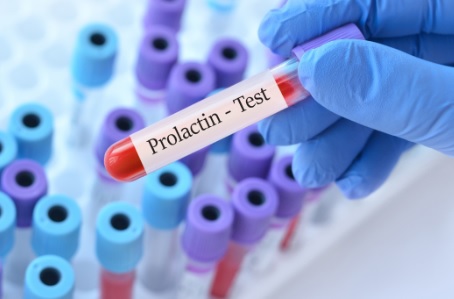
Excess prolactin, also known as hyperprolactinemia, can lead to a variety of health issues, including infertility, sexual dysfunction, and bone loss. Managing this condition often involves medical intervention, but lifestyle changes can also play a significant role. In this article, we will explore effective lifestyle modifications that can help control prolactin levels in your blood.
Understanding Prolactin and Its Effects
Prolactin is a hormone produced by the pituitary gland that plays a vital role in lactation and fertility. Elevated levels can be caused by various factors such as stress, medication, pituitary disorders, and hypothyroidism. Symptoms of high prolactin levels include irregular menstrual cycles, galactorrhea, and reduced libido. Addressing lifestyle factors can significantly impact these levels.
Dietary Modifications
Balanced Nutrition
A balanced diet is crucial for maintaining hormonal balance. Incorporate foods rich in vitamins B6 and E, as they have been shown to regulate prolactin levels. B6 is found in foods like chickpeas, tuna, and bananas, while vitamin E is abundant in nuts, seeds, and spinach.
Avoiding Prolactin-Stimulating Foods
Certain foods can stimulate prolactin production. Reduce intake of dairy products, as they contain casein, which can increase prolactin. Limit processed foods and those high in sugar, which can disrupt hormonal balance.
Incorporating Anti-inflammatory Foods
Chronic inflammation can elevate prolactin levels. Foods rich in omega-3 fatty acids, such as salmon, flaxseeds, and walnuts, have anti-inflammatory properties. Additionally, include antioxidant-rich fruits and vegetables, like berries, spinach, and kale, to combat inflammation.
Stress Management
Meditation and Mindfulness
Stress is a significant contributor to elevated prolactin levels. Meditation and mindfulness practices can reduce stress and help lower prolactin. Aim to practice meditation for at least 20 minutes a day to achieve optimal results.
Regular Exercise
Physical activity is an effective way to manage stress. Engage in regular exercise, such as brisk walking, yoga, or swimming, for at least 30 minutes daily. Exercise not only reduces stress but also improves overall health and hormonal balance.
Adequate Sleep
Quality sleep is essential for hormone regulation. Ensure you get 7-9 hours of sleep per night. Maintain a regular sleep schedule and create a restful environment to promote better sleep.
The treatment for excessive prolactin hormone levels in the body is Cabergoline 0.5 mg. Prolactin excess can make it harder for women to conceive and create symptoms like missing periods and undesired breast milk. Males who have high levels of prolactin may have symptoms including larger breasts and diminished libido or desire. Cabgoline 0.5mg is an ergot drug that inhibits the pituitary gland’s ability to release prolactin.
Herbal Remedies
Vitex (Chasteberry)
Vitex agnus-castus, commonly known as chasteberry, is an herb traditionally used to balance hormones and reduce prolactin levels. Consult with a healthcare provider before starting any herbal supplement.
Ashwagandha
Ashwagandha is an adaptogenic herb that helps the body manage stress and reduce prolactin levels. It is available in various forms, including capsules, powders, and teas.
Maca Root
Maca root is another adaptogen that can help balance hormones. It is known to support endocrine function and may help reduce prolactin levels.
Avoiding Environmental Toxins
Limit Exposure to Endocrine Disruptors
Environmental toxins, such as pesticides, plastics, and certain chemicals, can disrupt hormone levels. Use natural cleaning products, avoid plastic containers, and choose organic foods when possible.
Detoxification Practices
Support your body’s natural detoxification processes by staying hydrated, eating fiber-rich foods, and incorporating detoxifying herbs like dandelion root and milk thistle.
Medical Consultation and Monitoring
Regular Check-ups
If you have been diagnosed with hyperprolactinemia, regular monitoring of prolactin levels by a healthcare provider is crucial. This ensures that your lifestyle changes and any medical treatments are effective.
Medication Review
Certain medications, such as antipsychotics and antidepressants, can elevate prolactin levels. Review your medications with your healthcare provider to determine if adjustments are necessary.
Conclusion
Managing excess prolactin in your blood involves a comprehensive approach that includes dietary changes, stress management, herbal remedies, and reducing exposure to environmental toxins. By making these lifestyle adjustments, you can significantly impact your prolactin levels and overall well-being.